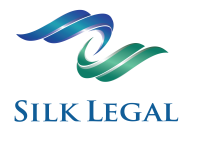By Don Sornumpol
Thailand’s regulatory authorities, the Bank of Thailand (BOT) and the Securities and Exchange Commission (SEC), have taken a cautious yet open-minded approach towards the use of cryptocurrencies as a means of payment. Their primary concerns—rooted in the volatility of digital assets, the risks of cybercrime, and potential money laundering—have led to a regulatory framework that discourages general usage while allowing for controlled experimentation through sandbox environments. To understand Thailand’s current position on crypto payments, it’s essential to consider the key developments and how they shape the existing regulatory landscape.
The BOT’s Position: Discouragement with Legal Exceptions
The BOT has consistently expressed concerns regarding the use of digital assets as a means of payment, citing their price volatility, the risk of cyber theft, and money laundering as primary factors. In a public statement on 8 July 2021, the BOT strongly discouraged the use of digital assets for payments but stopped short of an outright ban. Instead, it positioned such transactions as barter contracts under the Civil and Commercial Code (CCC).
While this legal stance allows the exchange of digital assets for goods and services under private contracts, it carries significant regulatory obligations, particularly under Thailand’s Anti-Money Laundering Act. For example, high-value transactions involving property could trigger mandatory reporting to the Anti-Money Laundering Office (AMLO). Nevertheless, smaller, individual transactions (e.g., selling personal items) remain lawful and do not attract such scrutiny.
The BOT’s official stance discourages the use of cryptocurrencies as a payment method for the general public, although it remains legally permissible under specific conditions.
The SEC’s Role: Regulating Digital Asset Business Operators
In parallel with the BOT’s stance, the SEC plays a critical role in regulating how digital assets are used by businesses. On 1 April 2022, the SEC issued regulation 5/2565, which prohibited digital asset business operators (such as crypto exchanges and custodial wallet providers) from facilitating or promoting the use of digital assets for payments. This regulation specifically targeted licensed operators under the Emergency Decree of 2018, aiming to prevent them from offering services that allow customers to regularly receive cryptocurrencies as payment for goods and services.
This regulation, however, does not apply to private individuals or non-licensed businesses, which are still governed by the broader BOT framework. The SEC’s approach reflects a desire to maintain oversight over digital asset businesses while not entirely closing off the potential for crypto usage in payments.
The SEC places strict restrictions on licensed digital asset operators, preventing them from promoting or facilitating crypto payments, while allowing room for private transactions under existing BOT guidelines.
Innovation through the Programmable Payment Sandbox
In response to growing interest in digital asset technology and programmable payments, the BOT introduced a new initiative on 14 June 2024: the Enhanced Regulatory Sandbox. This sandbox is designed to allow financial service providers and other companies to test distributed ledger technology (DLT) and smart contracts for programmable payments in a controlled environment. It marks a significant step towards innovation, enabling businesses to explore new use cases for cryptocurrencies without facing the broader regulatory constraints that apply to the general public.
However, the launch of this sandbox does not represent a reversal of the BOT’s earlier stance. Instead, it provides a narrow exception, offering an opportunity for controlled experimentation within strict regulatory parameters. Businesses interested in participating in the sandbox had until 13 September 2024 to apply, and successful participants can now engage in programmable payment transactions under the BOT’s supervision.
The BOT’s sandbox offers a controlled space for innovation in programmable payments, without altering its general discouragement of crypto as a payment method for the wider public.
SEC’s 3 September 2024 Revision
Reflecting the BOT’s evolving approach, the SEC revised regulation 5/2565 on 3 September 2024 to accommodate participants in the BOT’s sandbox. Under this revision, digital asset business operators who are part of the programmable payments sandbox are exempted from the SEC’s prohibition on facilitating crypto payments. This move opens the door for certain businesses to explore the use of digital assets for payments within a regulated framework.
Additionally, the SEC revised the list of cryptocurrencies that can be accepted by Initial Coin Offerings (ICOs) for fundraising and by digital asset business operators for conducting transactions. This updated list includes:
- Bitcoin (BTC)
- Ethereum (ETH)
- Ripple (XRP)
- Stellar (XLM)
- Cryptocurrencies issued through the BOT’s Programmable Payment Enhanced Regulatory Sandbox
The SEC has carved out a space for businesses in the BOT sandbox to legally accept crypto payments, expanding the range of permissible transactions for a select group of operators while maintaining regulatory oversight.
Thailand’s Pragmatic Approach to Digital Asset Payments
The current regulatory stance in Thailand reflects a pragmatic approach to digital asset payments. While the use of cryptocurrencies as a means of payment remains discouraged for the general public, both the BOT and SEC are allowing room for controlled innovation through regulatory sandboxes and exceptions. The BOT’s Enhanced Regulatory Sandbox and the SEC’s revised regulations signal a willingness to explore the future of digital assets in payment systems, albeit within tightly regulated confines.
For businesses, especially those participating in the sandbox, this represents an opportunity to engage with cutting-edge technologies in programmable payments. However, for the broader public and non-sandbox participants, the use of crypto as a means of payment remains largely limited to private transactions, governed by existing legal frameworks and subject to anti-money laundering regulations.
Thailand’s regulatory framework on digital assets continues to evolve, offering a balance between caution and innovation as the nation navigates the complexities of a rapidly changing financial landscape.
Disclaimer: This article is for informational purposes only and should not be construed as legal advice and/or fact. It is always recommended to consult a legal professional before engaging in business activities related to digital assets in Thailand. Please get in touch with us by sending an email to [email protected].



